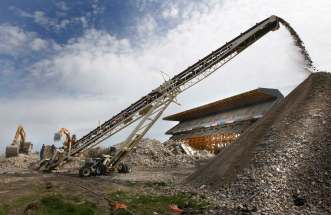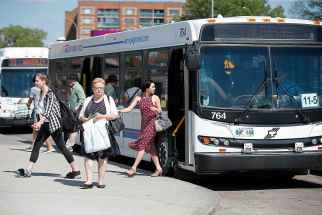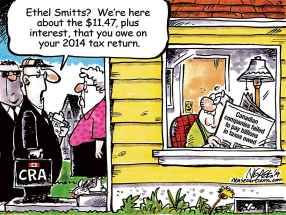If the bus is late, don’t take it out on the driver
Read this article for free:
or
Already have an account? Log in here »
To continue reading, please subscribe:
Monthly Digital Subscription
$0 for the first 4 weeks*
- Enjoy unlimited reading on winnipegfreepress.com
- Read the E-Edition, our digital replica newspaper
- Access News Break, our award-winning app
- Play interactive puzzles
*No charge for 4 weeks then price increases to the regular rate of $19.00 plus GST every four weeks. Offer available to new and qualified returning subscribers only. Cancel any time.
Monthly Digital Subscription
$4.75/week*
- Enjoy unlimited reading on winnipegfreepress.com
- Read the E-Edition, our digital replica newspaper
- Access News Break, our award-winning app
- Play interactive puzzles
*Billed as $19 plus GST every four weeks. Cancel any time.
To continue reading, please subscribe:
Add Free Press access to your Brandon Sun subscription for only an additional
$1 for the first 4 weeks*
*Your next subscription payment will increase by $1.00 and you will be charged $16.99 plus GST for four weeks. After four weeks, your payment will increase to $23.99 plus GST every four weeks.
Read unlimited articles for free today:
or
Already have an account? Log in here »
Hey there, time traveller!
This article was published 03/07/2019 (2355 days ago), so information in it may no longer be current.
It’s understandable if people get perturbed when they arrive at their bus stop on time, but the bus does not.
A bus that arrives late can initiate a chain reaction of misfortune for passengers who are then — through no fault of their own — too late to connect with other buses, and possibly made late for appointments, school or jobs.
Missed your bus? Chances are you're not alone
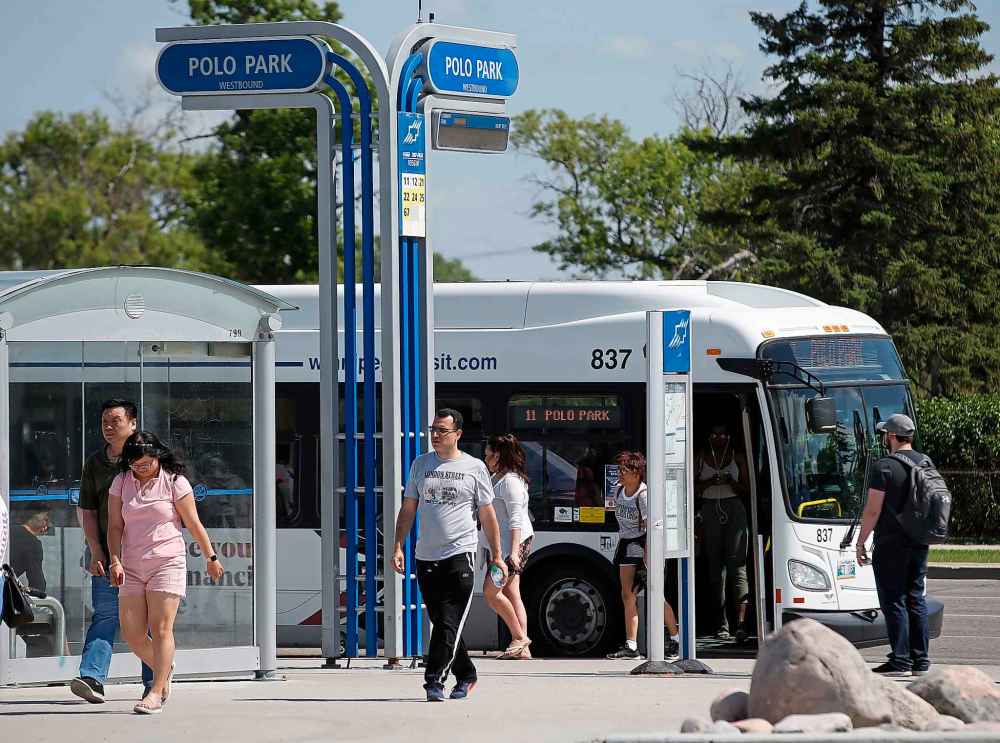
Posted:
There’s a 43 per cent chance any City of Winnipeg bus will arrive early or late, according to new data released by Winnipeg Transit.
Unfortunately, such passengers often take out their frustration on the drivers of belated buses, expressing their ire with an arsenal of communication that ranges from angry glares to muttered expletives.
Such driver blaming has to stop. On the front line of customer service, the city’s bus drivers bear the brunt of passenger displeasure even when they are given routes on which it is virtually impossible to hit all scheduled stops to the precise minute.
The results of inflicting unrealistic expectations on drivers were made clear this week when the city posted online extensive data about the scheduling challenges on the city’s transit grid.
The data show there’s a 43 per cent chance a city bus will arrive early or late. During the afternoon rush hour — 4 to 6:30 p.m. — 56 per cent of buses are not on time. Transit defines a bus as late if it arrives three minutes or more behind schedule, and early if it’s one minute or more before its posted time of arrival.
What’s the big deal about a few minutes? It might seem like a small matter to people who don’t take the bus, but to people who rely on Transit Tom, as the city’s bus system is affectionately nicknamed, a few minutes can upset a day that’s carefully planned. For example, when a bus arrives and departs a stop a minute early, the would-be passengers who arrive just on time might have to wait anywhere from 20 minutes to an hour for their next opportunity at boarding.
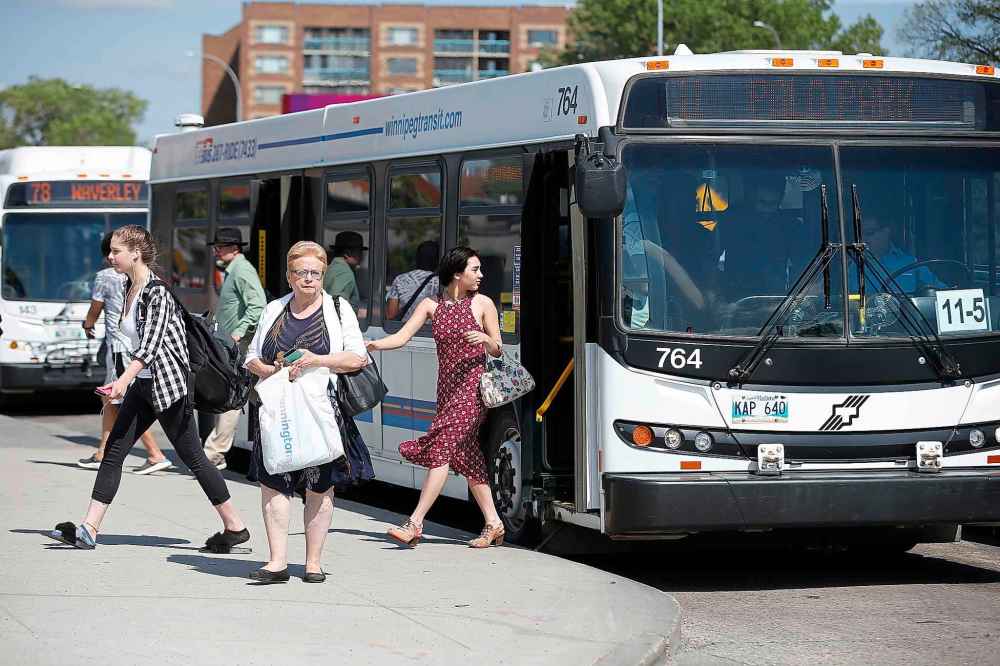
Amalgamated Transit Union Local 1505, which represents bus drivers, says passengers who are miffed their ride does not arrive as scheduled often aim their displeasure at the people in the driver’s seats, even though the schedule is out of the control of drivers.
Everyone who drives a personal vehicle in Winnipeg knows traffic flow is wildly unpredictable because of difficulties including road construction, routes jammed with traffic during rush hours and weather challenges including glare-ice surfaces in winter. Imagine weaving through such traffic challenges in a bus that is 14 metres long, must pull over and stop every block or two, and then try to rejoin the traffic flow in a city where not all drivers are eager to allow buses or other vehicles to make a lane change in front of them.
Amalgamated Transit Union Local 1505, which represents bus drivers, says passengers who are miffed their ride does not arrive as scheduled often aim their displeasure at the people in the driver’s seats, even though the schedule is out of the control of drivers.
Other jurisdictions are more respectful to buses, even if the respect is forced by fear of a hefty fine. Ontario has, since 2003, had a law that states drivers who don’t yield to transit buses trying to get back into traffic can be fined up to $500.
Ottawa is an example of a city that gives its buses the support needed to meet their schedules. Shoulder lanes on some freeways are restricted to buses. Some intersections let buses stop at red lights several metres further ahead than regular traffic, which allows them jump the queue when the light turns green.
It’s something to think about the next time we’re waiting for a Winnipeg bus that is running a bit late. It’s not the fault of the drivers. It’s the fault of a city that hasn’t taken the measures necessary to give buses priority in traffic.





